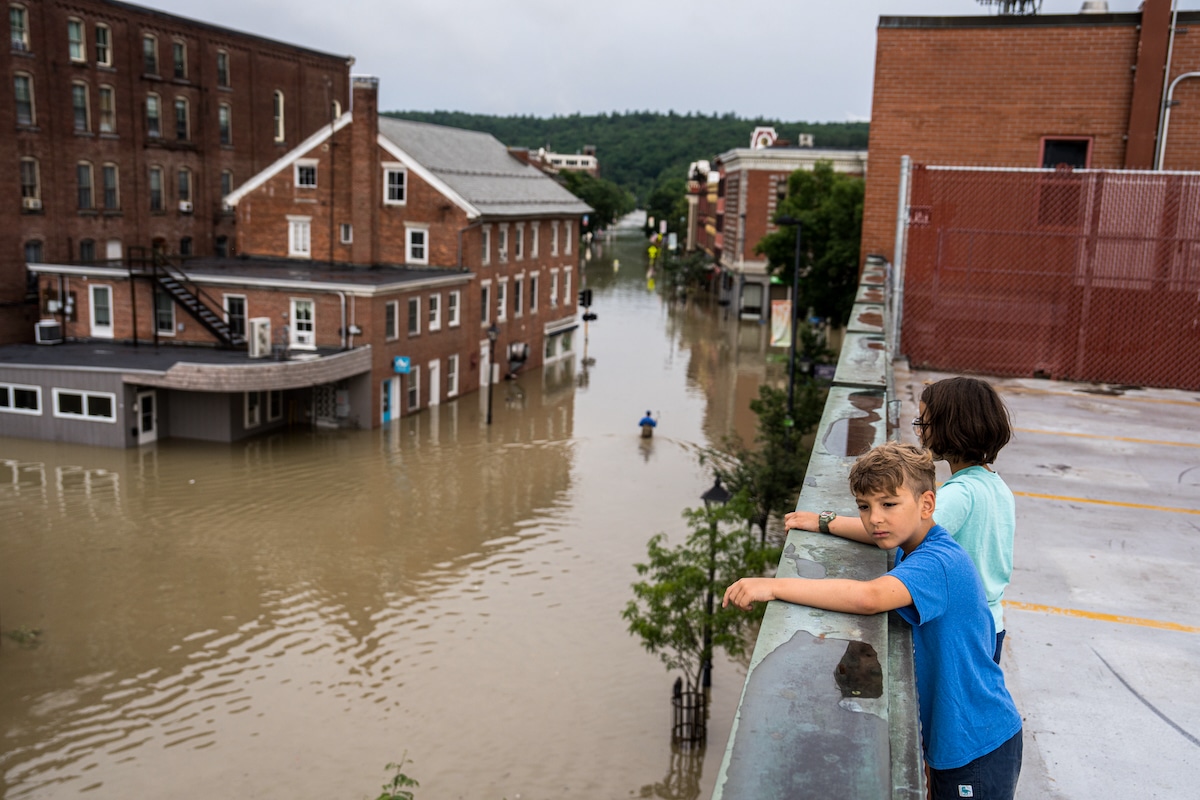Vermont Could Become First State to Make Biggest Emitters Pay for Climate-Related Damages

 Why you can trust us
Why you can trust us
Founded in 2005 as an Ohio-based environmental newspaper, EcoWatch is a digital platform dedicated to publishing quality, science-based content on environmental issues, causes, and solutions.
Vermont’s House of Representatives has passed S.259, a state bill aimed at collecting recovery costs for climate-related damages from the biggest emitters, such as fossil fuel companies.
The bill, called the Climate Superfund Act, was introduced to create a Climate Superfund Cost Recovery Program, in which fossil fuel businesses would undergo an assessment to determine their share of costs for fossil fuel extraction or refinement actions that led to increased greenhouse gases and related costs in the state.
As reported by NBC News, the agency would measure extreme weather linked to climate change in the state and the cost of damages from extreme weather events through attribution science. From there, the agency would calculate companies’ emissions from 1995 to 2024 to determine a share of the costs to charge each company.
According to the bill, costs collected from the program would be put into a Climate Superfund Cost Recovery Program Fund, managed by the state’s Agency of Natural Resources, with funds going toward state projects that improve adaption or resilience to climate change.
“We’re able to say very clearly, ‘We would not be experiencing these intense global temperatures without human-caused climate change and the history of carbon pollution,’” Andrew Pershing, vice president for science at the nonprofit Climate Central, told NBC News.
“New England has had a 60% increase in the heaviest precipitation days,” Pershing added. “For every 1-degree Fahrenheit increase in temperature, you get a 4% increase in the amount of water vapor that the atmosphere can hold.”
The bill still needs to go through a final approval vote in the state Senate before going to the governor for signing. If it does pass, Vermont would be the first state with a law that holds companies with high emissions financially responsible for climate-related damages to the state. Other states, including New York, Massachusetts, California and Maryland are working toward passing similar legislation.
But the bill could face further hurdles to becoming a law. As The Guardian reported, Republican Governor Phil Scott could potentially veto the bill, but supporters believe they would have enough votes to overturn a veto, if it happens. Even without a veto, the law could face many battles in court from companies that oppose it.
Still, the bill’s supporters believe in fighting for the bill, pointing to strong attribution science that links human activities to climate change and its consequences.
“You see towns across the state underwater, and communities and businesses financially devastated. The reality of the climate crisis just really comes crashing home,” Ben Edgerly Walsh, climate and energy program director for the Vermont Public Interest Research Group, told NBC News. “These are facts that we are dealing with in real time that we need the financial resources to deal with.”
Vermont just experienced its warmest winter on record, Burlington Free Press reported. Last summer, the state broke more records in rainfall and flooding, which cost the Northeast an estimated $2.2 billion.
Subscribe to get exclusive updates in our daily newsletter!
By signing up, you agree to the Terms of Use and Privacy Policy & to receive electronic communications from EcoWatch Media Group, which may include marketing promotions, advertisements and sponsored content.

 233k
233k  41k
41k  Subscribe
Subscribe 




